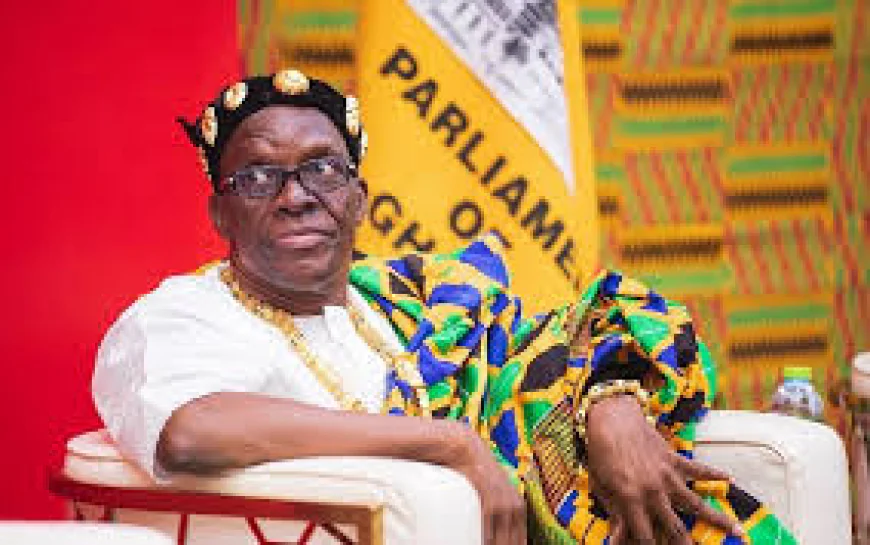Show Us Your Wealth! Ghana's Parliament Pushes for Mandatory Lifestyle Audits
Ghana’s Parliament is drafting legislation to legalize lifestyle audits for public officials, aiming to curb corruption by scrutinizing unexplained wealth.

As Speaker Alban Bagbin announces plans to legislate lifestyle audits, Ghana edges closer to a major accountability shift. Will this curb corruption or face political resistance?
Introduction
Ghana’s fight against corruption may soon take a dramatic turn as Parliament prepares to draft legislation formalizing lifestyle audits—a tool designed to scrutinize the wealth and spending of public officials. The announcement by Speaker Alban Bagbin signals a potential milestone in accountability, but also raises questions: How will audits work? Who will be targeted? And will this finally deter graft in a nation weary of scandals?
What Are Lifestyle Audits?
Lifestyle audits involve tracking public officials’ income, assets, and expenditures to identify discrepancies suggesting illicit enrichment. For example:
-
If a minister’s salary is GH¢20,000/month but they own multiple luxury homes, audits could demand explanations.
-
Sudden wealth spikes (e.g., a civil servant buying high-end cars) could trigger investigations.
Globally, countries like Kenya and South Africa use audits to expose corruption, but implementation often faces political pushback.
Why Now? Ghana’s Corruption Context
-
Recent Scandals: From Agyapa Royalties to COVID-19 fund abuses, corruption allegations persist.
-
Public Pressure: 76% of Ghanaians believe corruption increased in 2023 (GSS survey).
-
IMF & Anti-Graft Conditions: Ghana’s $3B IMF bailout includes governance reforms.
Speaker Bagbin’s move aligns with growing demands for transparency.
How It Could Work – Key Questions
-
Who Gets Audited? All politicians? Judges? Senior civil servants?
-
Who Investigates? CHRAJ? OSP? A new agency?
-
Penalties: Will offenders face jail, asset forfeiture, or just fines?
Without clear rules, audits risk being weaponized or ignored.
- Implications for Politicians & Public Officials
- Deterrent Effect: Fear of exposure may curb blatant corruption.
- Political Resistance: MPs may dilute the law to protect interests.
- Privacy vs. Public Interest: Balancing rights with accountability will be contentious.
Example: Kenya’s audits revealed officials owning $500K homes on $5K salaries—but prosecutions lagged.
What It Means for Ordinary Ghanaians
-
Public Trust: If enforced fairly, audits could restore faith in governance.
-
Economic Impact: Recovered funds could boost infrastructure, healthcare, etc.
-
Risks: Token audits or selective targeting may deepen cynicism.
“If this is real, we’ll finally see who’s eating the money.” – Taxi driver, Accra (informal vox pop)
Challenges Ahead
-
Legal Hurdles: Drafting a watertight law to survive court challenges.
-
Enforcement: Ghana’s history of weak anti-graft prosecution (e.g., EOCO’s low conviction rate).
-
Cultural Shift: Audits require a break from “see no evil” complacency.
Comparisons: South Africa & Kenya
|
Country |
Success? |
Outcome |
|
South Africa |
Partial |
Exposed Zuma-linked graft, but slow convictions |
|
Kenya |
Mixed |
Revealed theft, but audits became politicized |
|
Ghana |
Pending |
Will Parliament walk the talk? |
What’s Next?
-
Draft legislation expected in Q1 2025.
-
Civil society groups (e.g., GII, IMANI) vow to monitor the process.
-
Public hearings likely to spark heated debates.
Final Word
Lifestyle audits could be a game-changer, or another promise lost to bureaucracy. For Ghanaians, the stakes are high: transparency or business as usual?


